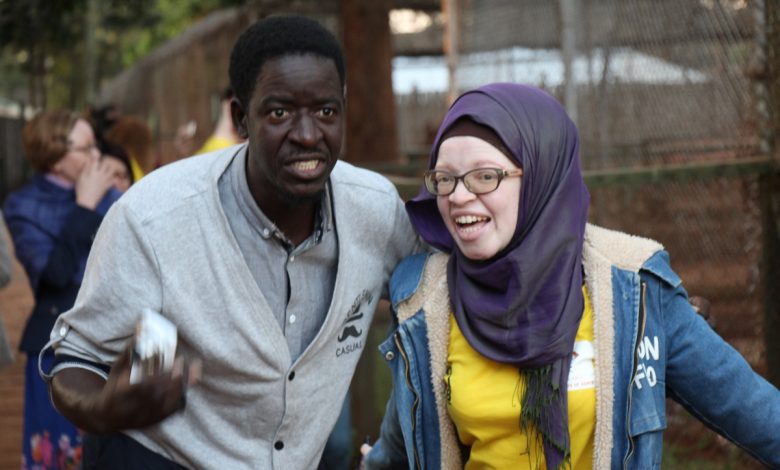
Pat Larubi: A journalist fighting for the rights of people with albinism
Pat Robert Larubi is a seasoned Ugandan investigative freelance journalist but one with a bias in advocating for people with albinism.
He says his love for people with albinism was born out of one of his journalistic escapades and changed his life forever.
“During one of my works as an investigative journalist, I unearthed something which will never go off my mind. It was a story of John, a 40-year-old man in Kayunga district who was murdered by unknown people for refusing to sell to them his albino daughter,” Larubi says.
“On the fateful day after many attempts to ask John sell his daughter, the 40-year-old man was lured to a nearby drinking joint from where he was later killed. When the police sniffer dogs were brought, they led detectives to one of the shops where a bucket of blood was recovered. Another man was arrested who confessed that he was with a group of other who killed John for refusal to sell them his albino daughter. The man said since John could not give them his daughter, they should kill him and suck his blood because it was similar to his daughter’s,” he says.
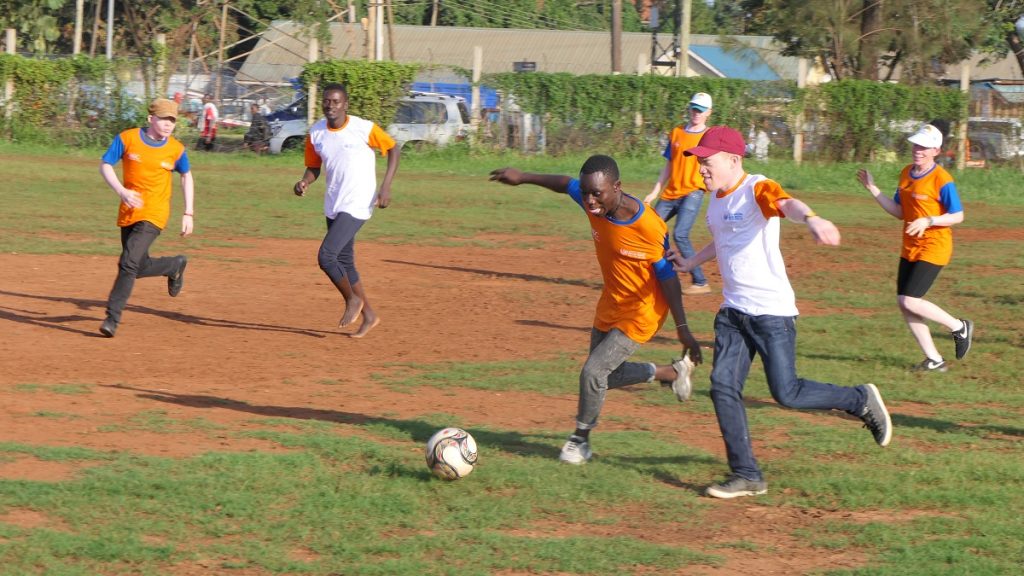
Because of this incident, Larubi dedicated a part of his life to advocate for people with albinism, using journalism as the platform to achieve this goal.
He formed Pats Journal, a media and human rights non-governmental organization working towards inclusion, ending stigma and discrimination faced by persons with albinism.
Using the platform, he took on amplifying the voices of persons with albinism, not only in Uganda but across the East African region.
“I realized there was lot of negative portrayal on the subject of albinism and I thought it would be wise to cut on the noise of negativity by telling the world what they really needed to know and how they can take action to make this world a better place for all, including persons with albinism,” he adds.
The advocacy he has done has seen Larubi nicknamed “the black Albino” by his peers.
“Whereas to many this was just a simple nickname, to me it was a testament to the good work I am doing. It gave me more energy to create awareness, promotion and protecting the rights of persons with Albinism. It gave me more enthusiasm to champion rights of people with albinism,” he says.
He says as part of his efforts to highlight the plight of people with albinism in 2019 together with a team of fellow youths he organized the first ever regional contest of Mr. and Miss Albinism.
“The contest brought together 30 people with albinism from Kenya, Tanzania and Uganda. The regional contest sought to tackle issues of myths and stigma associated with albinism as well showcase the potential that lies in persons with albinism. From the contest the first ever Mr. and Miss Albinism Uganda and East Africa were crowned, a key turning point in advancing for the rights of people with albinism,” he says.
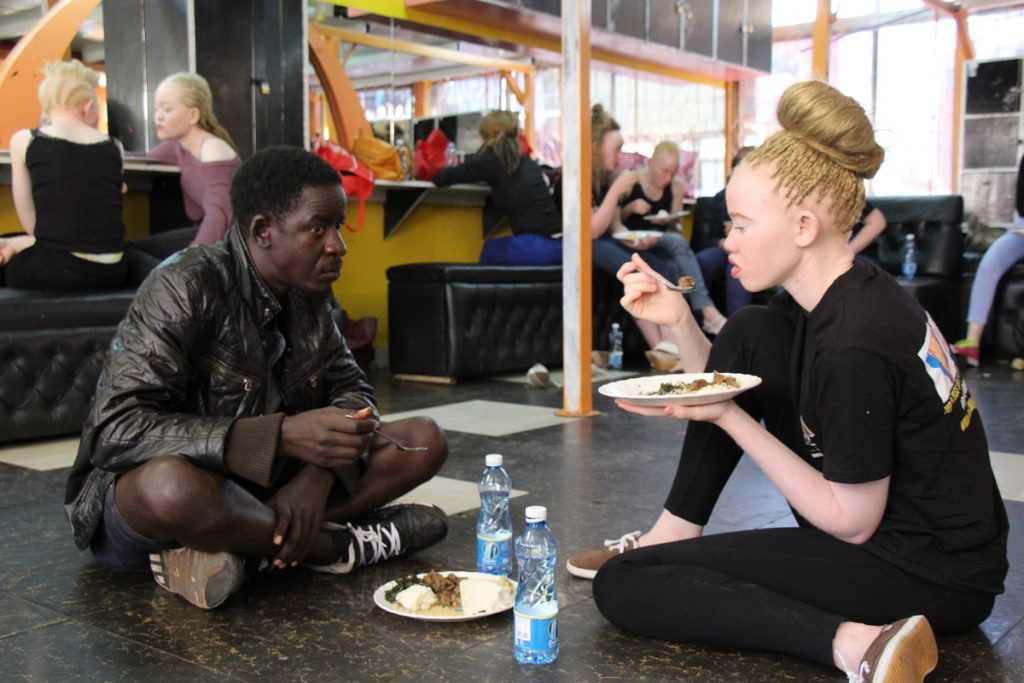
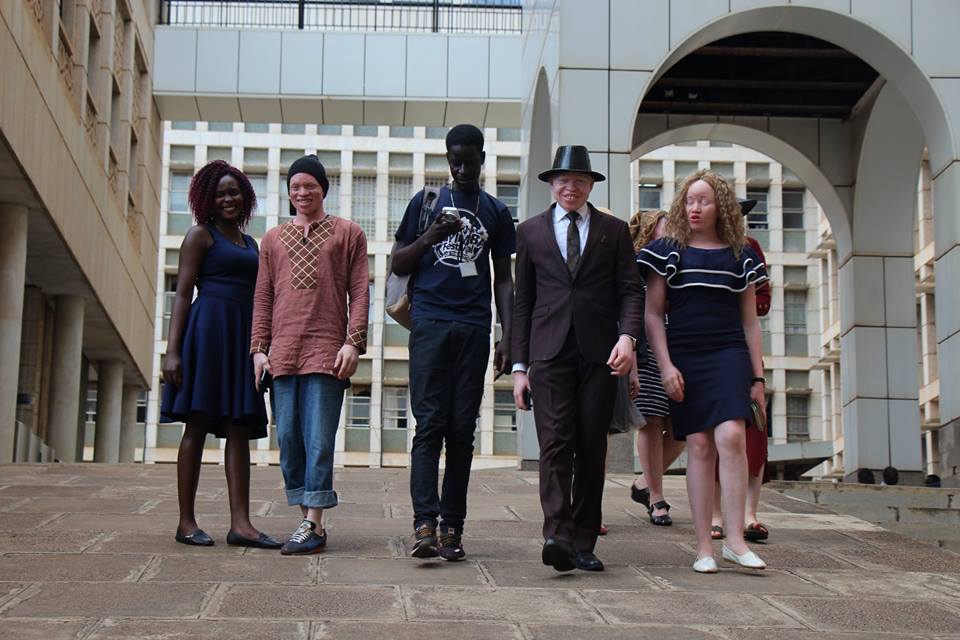
Covid-19
When the pandemic hit the globe, this was yet another opportunity for Larubi to further help people with albinism who were affected.
“Whereas other people cried for food during the lockdown, the albinos cried for sunscreens because they are needed to aid their survival. The pandemic and its effects like the lockdown had come with a number of other effects including the ban on public transport which meant our people could not move nor access the much needed sunscreens,” he says.
According to Larubi, because of lack of pigmentation, people with albinism develop sores on their skins that in turn develop into skin cancer; a situation he says can be saved by providing sunscreens to people.
Using a motorbike, Larubi embarked on a journey to traverse the entire country to provide protective sunscreens to over 200 persons with albinism.
He is happy to have achieved this mission.
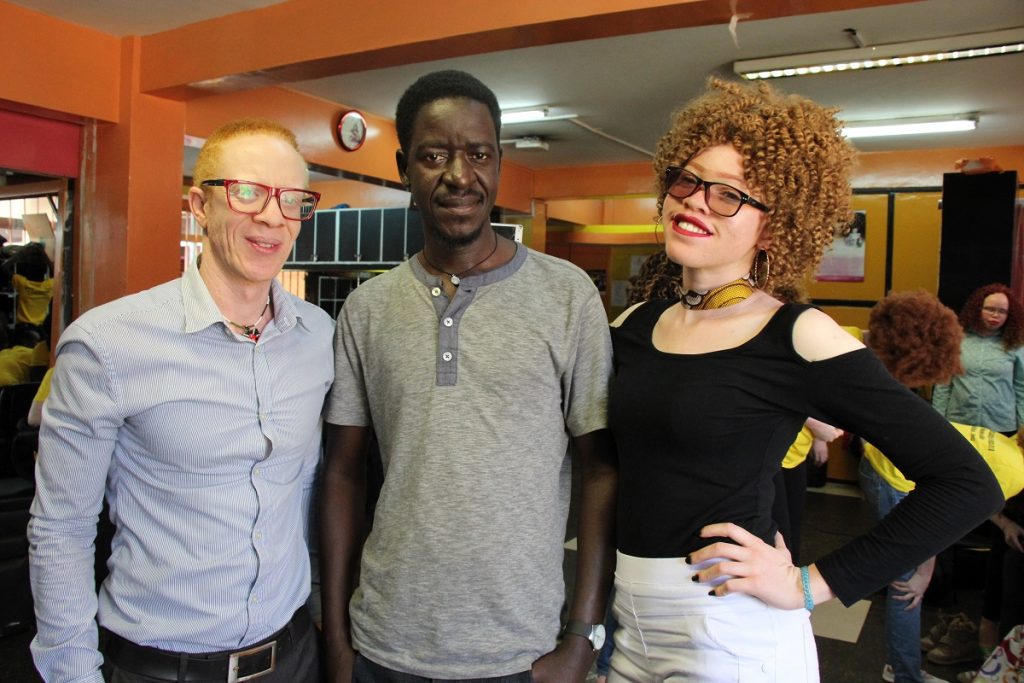
Proud
Larubi says he is proud of the work he has done in regards to fighting for rights of people with albinism.
“Today, the perception of Ugandans on albinism is slowly by slowly changing. People no longer treat persons with albinism the way they used to. Incidents of attack, kidnap for ritual murder, mutilation, stigma and outright discrimination of persons with albinism has reduced. The persons with albinism also feel a sense of belonging,” he says.
Larubi says he plans to create a think tank towards eliminating stereotypes and stigma for people with albinism.
He says he wants to see equality among all people including those with albinism.
“We must not leave anyone behind because of their skin colour, ethnicity or language. I am the black albino who will fetch the firewood as they light the fire to change the world.
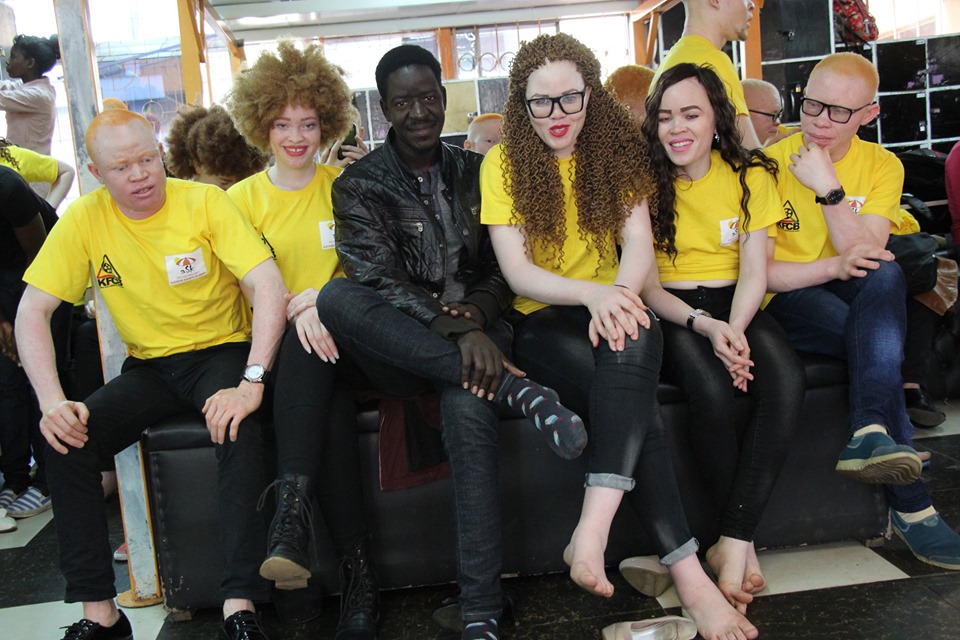
Urge
Government ought to come out with minimum health care package for Ugandans including albinos.
“Can government provide sun screens to people with albinism wherever they are? If not, the cancer problem among these people will go up. Government needs to fast-track a law to protect people with albinism to protect these people from human trafficking and ritual sacrifices.” “People think more about physical disability but government must restrategise to give all forms of disability the attention they deserve. Think about their visuals and education. If we don’t send them to school, they will live in poverty. Government entities like Equal Opportunities Commission should consider them for opportunities.”



